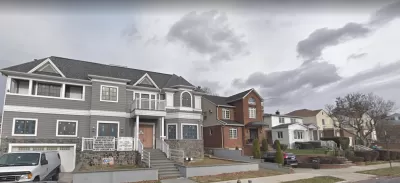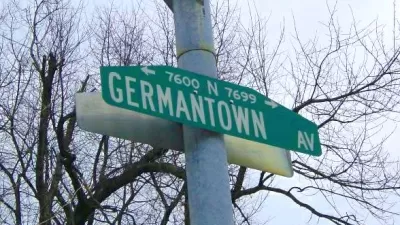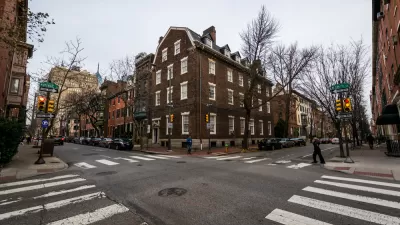A rezoning process for a neighborhood in Queens will allow homes to be built wider and deeper. Supporters say the space is needed for large families.

"Parts of Kew Gardens Hills are doubling down on single-family home zoning and wider, deeper houses — bucking a national trend amid an affordable housing crunch in New York and beyond," reports Savannah Jacobson.
The Kew Gardens Hills plan will allow about 400 single-family homes to build out horizontally, and it already has approval from Community Board 8, which applied for the rezoning, as well as Borough President Melinda Katz and the City Planning Commission. The plan still requires approval from the City Council and Mayor Bill de Blasio, which is "all but guaranteed."
As Jacobson notes, the plan stands in stark contrast to the trend toward allowing new density to accommodate growth in cities like Minneapolis and states like Oregon and California.
The Kew Gardens Hills plan takes the poosite approach, according to Jacobson. "Local Councilmember Rory Lancman (D-Queens) supports the Kew Gardens Hill plan, which will allow the single-family homes to build out horizontally – even as he penned an op-ed calling for denser housing in the city." By Lancman's reasoning, larger homes will accommodate the larger families that live in the neighborhood.
Similar arguments for downzoning as a positive environmental tool were also made recently in support of a growth cap approved by the city of Lakewood in Colorado.
FULL STORY: QUEENS NEIGHBORHOOD FIGHTS FOR BIGGER SINGLE-FAMILY HOMES, BUCKING U.S. TREND

Alabama: Trump Terminates Settlements for Black Communities Harmed By Raw Sewage
Trump deemed the landmark civil rights agreement “illegal DEI and environmental justice policy.”

Study: Maui’s Plan to Convert Vacation Rentals to Long-Term Housing Could Cause Nearly $1 Billion Economic Loss
The plan would reduce visitor accommodation by 25% resulting in 1,900 jobs lost.

Why Should We Subsidize Public Transportation?
Many public transit agencies face financial stress due to rising costs, declining fare revenue, and declining subsidies. Transit advocates must provide a strong business case for increasing public transit funding.

Paris Bike Boom Leads to Steep Drop in Air Pollution
The French city’s air quality has improved dramatically in the past 20 years, coinciding with a growth in cycling.

Why Housing Costs More to Build in California Than in Texas
Hard costs like labor and materials combined with ‘soft’ costs such as permitting make building in the San Francisco Bay Area almost three times as costly as in Texas cities.

San Diego County Sees a Rise in Urban Coyotes
San Diego County experiences a rise in urban coyotes, as sightings become prevalent throughout its urban neighbourhoods and surrounding areas.
Urban Design for Planners 1: Software Tools
This six-course series explores essential urban design concepts using open source software and equips planners with the tools they need to participate fully in the urban design process.
Planning for Universal Design
Learn the tools for implementing Universal Design in planning regulations.
Smith Gee Studio
Alamo Area Metropolitan Planning Organization
City of Santa Clarita
Institute for Housing and Urban Development Studies (IHS)
City of Grandview
Harvard GSD Executive Education
Toledo-Lucas County Plan Commissions
Salt Lake City
NYU Wagner Graduate School of Public Service





























